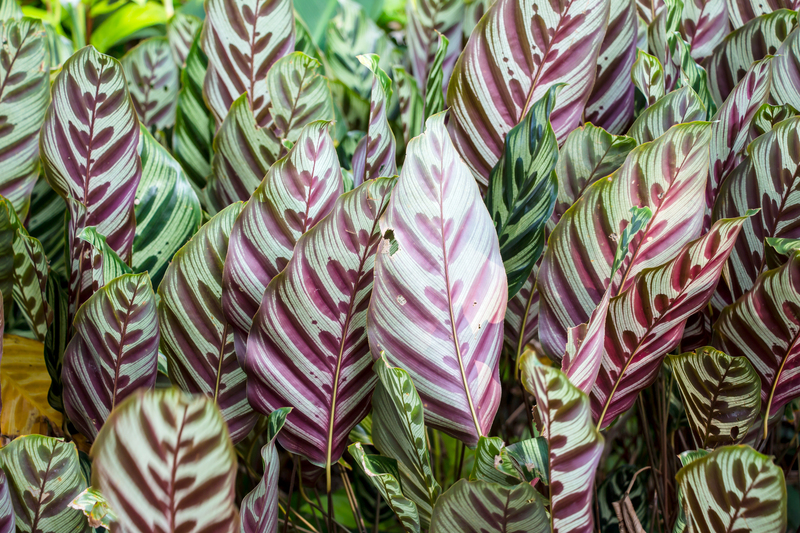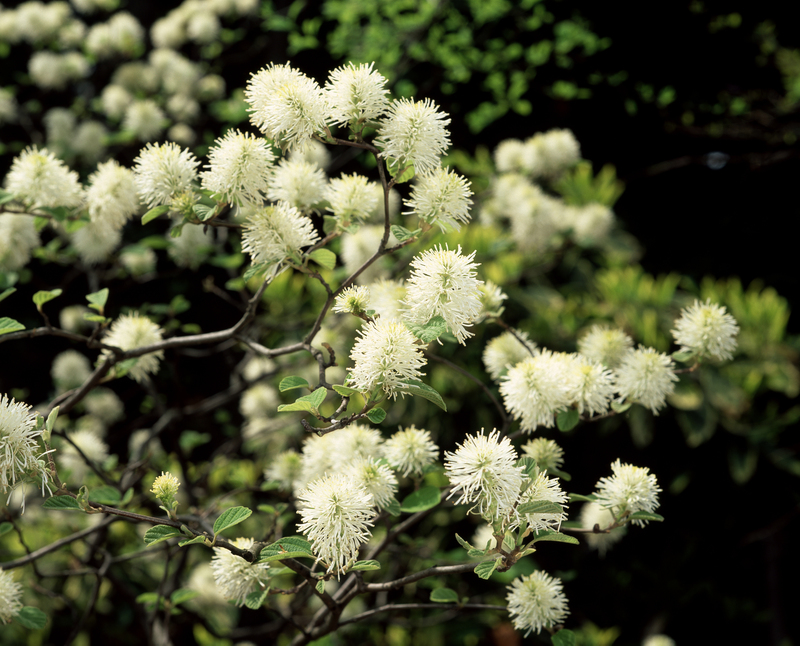Sustainable gardening through clever container options
Posted on 13/06/2025
Sustainable Gardening Through Clever Container Options: Cultivating a Greener World
Sustainable gardening is a powerful movement shaping the future of urban and rural landscapes alike. With growing environmental concerns, gardeners are turning to eco-conscious methods to reduce waste, conserve resources, and promote biodiversity. One of the most accessible and impactful ways to go green is by embracing clever container options for your garden. This article delves into the art and science of sustainable container gardening, offering inspiration, practical tips, and eco-friendly choices for every gardener.

Why Choose Sustainable Container Gardening?
Container gardening offers countless advantages, especially when it comes to sustainability:
- Urban Accessibility: Containers allow plant growth in limited spaces, such as balconies, patios, and rooftops.
- Resource Efficiency: Effective containers help conserve water and minimize soil loss.
- Reduced Environmental Impact: Using upcycled and biodegradable containers limits your carbon footprint and reduces plastic waste.
- Pest Control: Containers make it easier to manage pests without harmful chemicals.
- Flexibility: Move or rotate plants for maximum sunlight and efficiency in any environment.
Sustainable Container Options: Choosing Eco-Friendly Materials
Every material you pick shapes the sustainability of your garden. The following eco-friendly container options can transform your green space while nurturing the planet:
1. Upcycled Containers
Upcycling breathes new life into old objects that would otherwise end up in landfills. Not only does this approach save money, but it sparks creativity and reduces environmental waste. Popular upcycled container ideas include:
- Old buckets (metal or plastic)
- Wooden crates
- Discarded kitchenware (colanders, teapots, or mugs)
- Pallet boxes
- Tires (painted or wrapped for aesthetics and safety)
- Glass jars and bottles (perfect for herbs and succulents)
2. Biodegradable Pots
Compostable pots made from natural materials break down over time, enriching your soil and garden ecosystem. Choose from:
- Coconut coir (fibrous material from coconut husks)
- Peat pots (be mindful: peat extraction can be unsustainable--look for responsibly sourced options!)
- Rice husks, bamboo fiber, or compressed paper pots
3. Terracotta and Clay Containers
Terracotta or clay pots have been used for centuries in traditional gardening. They're made from natural earth materials and are highly porous, which improves aeration for plant roots. While heavier and sometimes prone to breakage, their earthy look, insulation properties, and longevity make them a mainstay for sustainable gardening containers.
4. Fabric Planters
Reusable fabric pots--often made from recycled or organic materials--have soared in popularity. They improve drainage, root aeration, and temperature regulation. Options include:
- Grow bags made from recycled PET bottles
- Canvas or burlap sacks
- Hemp-based fabric pots
5. Metal Containers
Retired or repurposed metal objects such as cans, buckets, or bathtubs add a rustic charm to your outdoor space. They're durable and can be insulated or painted for both aesthetics and protection against excessive heat. Remember to line or treat metal containers to prevent rust and ensure proper drainage.
Key Principles of Sustainable Container Gardening
Thriving eco-friendly container gardens are built on fundamental sustainable practices, no matter the chosen vessel. Incorporate the following:
- Right Plant-Container Match: Select plants suited for your climate and container size to prevent overuse of water and fertilizer.
- Sustainable Soil Mixes: Use local compost, coconut coir, or worm castings rather than peat-based or chemically fertilized soils.
- Water Conservation: Mulch container surfaces, install drip irrigation, and capture rainwater for your potted plants.
- Natural Pest Management: Encourage beneficial insects or companion plants instead of synthetic pesticides.
- Reuse, recycle, and repurpose containers as much as possible!
Innovative and Clever Container Gardening Ideas
Sustainable gardening is as much about creativity as it is about conservation. Explore these clever ideas for eco-friendly container gardening:
Vertical Gardens with Upcycled Wall Containers
Create a living wall using upcycled materials, such as shoe organizers, guttering, or old wooden palettes. These vertical installations maximize small spaces and can host herbs, flowers, or even edible greens. Layering plants vertically promotes better air flow and reduces disease, contributing to a sustainable and healthy plant ecosystem.
Self-Watering and Sub-Irrigated Planters
A self-watering container is designed with a reservoir at the base, allowing plants to draw water as needed, reducing evaporation and waste. These can be fashioned from repurposed plastic bottles, buckets-within-buckets, or commercially available options created from recycled materials. They're perfect for busy gardeners or drought-prone regions, embodying a practical approach to resource-wise gardening.
Edible Gardens in Reusable Containers
Grow food in clever containers like stacked crates, reclaimed barrels, or even large terracotta pots. Consider mixing vegetables with edible flowers to enhance pollinator activity and offer a pop of color. Portable containers make it easy to move sensitive crops indoors during harsh weather, extending the growing season and reducing plant loss--a truly sustainable strategy!
Benefits of Sustainable Container Gardening
- Waste Reduction: Repurposed containers reduce landfill contributions and give useful life to neglected items.
- Water Efficiency: Containers limit overwatering and evaporation, especially when mulched and grouped together.
- Pest and Disease Management: Individual containers minimize the risk of widespread infestations.
- Improved Accessibility: Raised containers are easier on the back and can be adapted for gardeners with mobility challenges.
- Enhanced Biodiversity: A variety of containers allows for experimentation with different plant species, including native and pollinator-friendly varieties.
How to Maintain a Sustainable Container Garden
A truly green container garden extends beyond choosing the right pot. Follow these essential practices to maximize sustainability:
1. Mindful Watering
Water deeply but less frequently to encourage deep root systems. Use mulch--like straw, bark, or coconut coir--to retain moisture. Collect and repurpose rainwater with small barrels or buckets.
2. Composting and Fertility
Turn kitchen scraps and yard waste into garden gold! Make your own compost and use compost tea or worm castings to boost plant health naturally. This eliminates chemical fertilizer reliance.
3. Seasonal Rotation and Container Care
Rotate plants according to season and replace or repair any container that shows signs of wear. Clean containers annually to prevent disease buildup and always check for adequate drainage.
4. Repurposing and Recycling Containers
As your plants grow or your tastes change, think before you throw away. Reuse containers for storage, as seedling trays, or donate them to community gardens.
FAQ: Sustainable Gardening with Containers
Are recycled plastic containers safe for food crops?
When selecting recycled plastic containers, look for food-grade plastics and avoid options that may leach chemicals. Lining or painting containers with safe, non-toxic coatings can add a layer of protection for edible plants.
How do I prevent my biodegradable pots from breaking down too soon?
Only water as necessary, and use biodegradable pots mainly for starting seedlings. Once roots show, transplant the whole pot into the garden or a larger, more durable container to continue biodegradation.
What is the best soil for sustainable container gardening?
Opt for mixes made from local compost, organic materials, and coconut coir. Avoid peat-heavy mixes, and incorporate perlite, sand, or vermiculite for improved drainage. Regularly replenish soil nutrients with organic fertilizers.
Sustainable Gardening Through Clever Containers: Key Takeaways
- Choose containers that extend product lifespan--think upcycling and reusing
- Select materials that are renewable or biodegradable, like bamboo, coco coir, or terracotta
- Avoid single-use plastics or chemically treated materials
- Implement water conservation strategies such as mulching and rainwater collection
- Support biodiversity with pollinator plants and companion planting
- Rotate crops and compost container contents to close the nutrient loop

The Future of Sustainable Container Gardening
As cities grow and green spaces shrink, container gardening provides a bridge to nature that anyone can cross. When approached with an eco-conscious mindset, every potted plant and upcycled vessel becomes a small act of environmental stewardship. By choosing sustainable gardening practices and clever, earth-friendly containers, you support local ecosystems, reduce waste, and nurture the world for future generations.
Start your sustainable container garden today: Gather unused items from your home, select environmentally responsible soils, and begin cultivating beauty and nutrients right where you are. Your balcony, patio, or windowsill can be both a showcase of nature's resilience and a testament to your commitment as a sustainable gardener.
Conclusion: Growing Greener with Every Container
Sustainable gardening with clever container choices is an achievable and rewarding way to live your values and tread lighter on the Earth. Whether you're cultivating fresh produce, vibrant flowers, or cheerful herbs, let each plant grow as a symbol of your dedication to the environment. Remember, every small change--every upcycled pot and resourceful idea--builds toward a healthier, more sustainable world.
Happy eco-gardening!
Latest Posts
Cultivate a Vibrant Garden on a Tight Budget
A Winter Guide to Protecting Your Cherished Garden Plants
Cultivating Harmony: Create Relaxing Seating Areas in Your Garden

